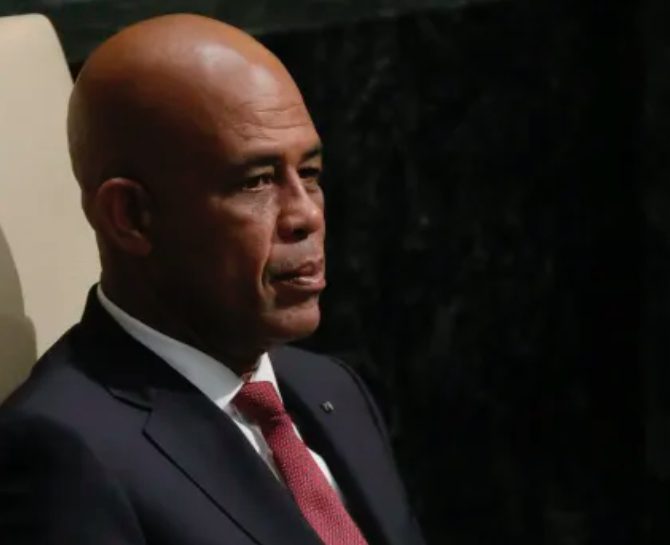The United States has imposed sanctions on former Haitian President Michel Martelly, accusing him of drug trafficking and contributing to the ongoing violence and instability in Haiti. The US Treasury Department announced the sanctions on Tuesday, stating that Martelly used his political influence to facilitate the trafficking of drugs into the United States. He is also accused of laundering drug money and collaborating with Haitian drug traffickers while sponsoring gangs that operate within Haiti.
As part of these sanctions, US institutions and citizens are now prohibited from engaging in any financial transactions with Martelly. The Treasury’s Acting Under Secretary for Terrorism and Financial Intelligence, Bradley Smith, emphasized the impact of Martelly’s actions, noting that he and other corrupt officials have played significant roles in perpetuating Haiti’s current crisis.
The US State Department echoed this sentiment, with spokesperson Vedant Patel stating that the sanctions reflect the United States’ commitment to holding accountable those who contribute to gang violence and the destabilization of Haiti’s political environment, regardless of their position or influence.
Martelly, who served as Haiti’s president from 2011 to 2016, has faced international scrutiny before. In November 2022, Canada sanctioned him on suspicions of supporting criminal gangs. Despite these allegations, Martelly has yet to publicly respond to the latest sanctions.
Martelly is not the first high-ranking Haitian official to be targeted by US sanctions. In June 2023, the US sanctioned former Haitian Prime Minister Laurent Lamothe for allegedly misusing millions of dollars, an accusation Lamothe denied. Additionally, in November 2022, the Treasury sanctioned Joseph Lambert, then-President of the Haitian Senate, and former Senator Youri Latortue for alleged drug trafficking. Lambert did not respond to requests for comment at the time, while Latortue strongly denied the charges.
These actions highlight the United States’ ongoing efforts to address corruption and criminal activity within Haiti, which continue to exacerbate the country’s political and social crises.





